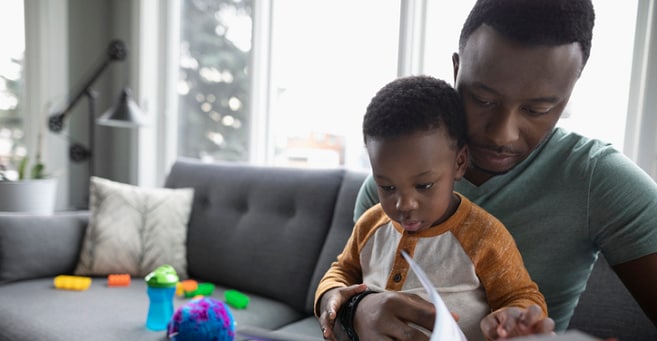Understanding how kids’ minds work and develop is an exciting advancement in science — but it can be daunting to learn that your parenting style affects your child’s brain. Before you stress, take heart — there are plenty of techniques parents can learn to help kids grow to their fullest potential.
Looking for childcare? Find carers in your area now.
“The way we communicate with our children and the kinds of experiences we provide them actually change the physical structure of their brains, and therefore, how it functions,” explains Dr. Tina Payne Bryson, co-author of the bestseller “The Whole-Brain Child.” “Since we play a significant role in how their brains are sculpted, it can be helpful for us to understand how it works. Knowing about the brain allows us to be effective in the survive moments and be intentional in building the brain to thrive as well.”
Dr. Bryson’s book aims to help parents integrate brain-beneficial practices into their everyday lives. “The strategies in ‘The Whole-Brain Child’ can be used in the everyday moments of parenting that will help parents both survive the difficult moments and give the child experiences that will help them thrive,” she says.
Here are six parenting strategies inspired by “The Whole-Brain Child.”
1. Teach children about the brain
Teaching kids about how their minds work can be helpful. They’ll understand more of what they’re going through as they age, and the lessons may aid them in thinking critically about different situations. Dr. Bryson explains that “The Whole-Brain Child” goes into further detail about how a child’s brain works and even provides age-appropriate descriptions and pictures to teach kids about development. You can simplify this by educating your child about how her brain controls her body, what different emotions are and how to make smart choices.
2. Calm down emotions by describing them
If a meltdown seems imminent, encourage your child to talk about his emotions. Having kids describe what they’re feeling or what is making them angry can calm them down while also improving communication skills. When children use more and more language, we can help them elaborate stories.
3. Move it to prevent losing it
When kids aren’t thinking rationally, or are in that meltdown state, it can help to distract them and their brains with movement. A great way to get kids using their bodies is to let them play. “Executive function” — planning and organization ability — develops in children through play, especially when they engage in pretend play with others. If playtime isn’t feasible, consider trying to run through a few simple exercises or stretches with your child.
4. Tell stories to grow the mind
Giving kids the language skills to share their stories helps build their minds. Describing emotions can calm little ones down, and storytelling has a similar effect. Try to have your child explain what she did that day, what the plot of her favorite book is or what she likes about a certain cartoon character. You’ll be exercising different areas of her brain while also limiting the risk for a tantrum.
5. Encourage kids to have insight and empathy
Insight and empathy come from experience, but you can get the ball rolling early on. “The science shows that when kids have repeated experiences from their carers where their needs are seen and responded to predictably and with empathy, the parts of the brain that allow them to have insight and empathy (the middle prefrontal cortex) develops optimally,” explains Dr. Bryson. This process takes time, so don’t be discouraged if your little one is slow to pick up on the needs of others. The young child thinks that she is the center of the universe, and that is normal.
6. Parents don’t have to be perfect to have perfect teachable moments
With “The Whole-Brain Child” approach, parents can use the good and the not-so-good moments to teach their kids important lessons. “We don’t have to be perfect as parents. We don’t have to have all the answers,” Dr. Bryson says. “We can use the everyday moments as opportunities to give them experiences that will lay the groundwork for developing their brains in ways that help them be flexible, adaptive, stable, and make sense of their world and who they are.”
Read Next: 9 Time-Saving Hacks for Parents
Read Next: Are You a Strict Parent?
Read Next: 4 Telltale signs of bad parenting

